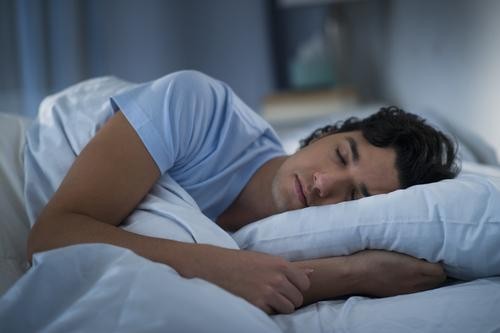
CEOs, politicians and other high achievers (we’re looking at you,Hillary Clinton) may only need an insane three to five hours of sleep a night. But normal folk require the optimal eight. Right? Not exactly, according to a glut of new research that shows Americans are on average sleeping less than they used to — and that seven hours might actually be the better span to aim for.
“The lowest mortality and morbidity is with seven hours,” Shawn Youngstedt, a professor in the College of Nursing and Health Innovation at Arizona State University Phoenix, told the Wall Street Journal. “Eight hours or more has consistently been shown to be hazardous.” Experts still generally recommend the range of seven to nine hours nightly for healthy adults, but the ideal
number seems to have dropped ever so slightly. It’s why both the Center for Disease Control and Prevention has funded a partnership with the American Academy of Sleep Medicine — the National Healthy Sleep Awareness Project — to discern how to best update recommended sleep guidelines in the coming year, and why the nonprofit National Sleep Foundation is doing the same.The CDC currently suggests seven to eight hours a night for healthy adults, but, a spokesperson told Yahoo Health, “as more evidence is presented by the scientific community, it is expected that these recommendations may change.”
Findings pointing to seven hours as a better goal than eight, according to the Wall Street Journal article, include those by Daniel F. Kripke, an emeritus professor of psychiatry at the University of California San Diego; in one study, he tracked 1.1 million people who participated in a cancer study, and found that people who reported sleeping 6.5 to 7.4 hours had a lower mortality rate than those with shorter or longer sleep. He also recorded the weeklong sleep activity of about 450 elderly women; a decade later, the researchers found that those who slept fewer than five hours or more than 6.5 hours had a higher mortality.
Then, in 2013, a study in the journal Frontiers in Human Neuroscience looked at the self-reported sleeping habits of about 160,000 users of cognitive-training website Lumosity, as well as results of spatial-memory, matching and math tests. They found that cognitive performance increased as people got more sleep, and reaching a peak at seven hours before starting to decline. After seven hours, “increasing sleep was not any more beneficial,” study co-author Murali Doraiswamy, a professor of psychiatry at Duke University Medical Center, told the Wall Street Journal.
Then, in 2013, a study in the journal Frontiers in Human Neuroscience looked at the self-reported sleeping habits of about 160,000 users of cognitive-training website Lumosity, as well as results of spatial-memory, matching and math tests. They found that cognitive performance increased as people got more sleep, and reaching a peak at seven hours before starting to decline. After seven hours, “increasing sleep was not any more beneficial,” study co-author Murali Doraiswamy, a professor of psychiatry at Duke University Medical Center, told the Wall Street Journal.
Still, doctors caution against scaring folks away from sleeping longer, pointing out that self-reported sleeping patterns from the various studies could be inaccurate, and that, depending on factors including age, state of health and genetics, optimal sleep time can vary with each individual. “I’m very nervous when I hear all these numbers,” M. Safwan Badr, director of the Sleep Fellowship Program at Wayne University and past president of the American Academy of Sleep Medicine, tells Yahoo Health. “Because it doesn’t answer the question for any individual, and doesn’t help me with individual patient, who could need anywhere from seven to nine hours — the amount of time it take you to wake up feeling comfortable and alert.” That said, Badr adds, “If we can get everybody to sleep at least seven hours a night, we have made progress.”
As the nation’s foremost sleep experts, including Badr, convene over the next many months to decide how to best update healthy sleep recommendations for the CDC, others will be doing so for the National Sleep Foundation, in an effort unrelated to that of the CDC. “NSF recommended sleep times combine the best available evidence with expert opinion,” the foundation’s scientific advisory council chair Max Hirshkowitz said in a press release. “As the nation’s leading organization focused on sleep health, it is our responsibility to ensure that we regularly revisit these estimates with an updated literature review and improved methodology.” Until that time, though, the recommended number of hours will stay at the tried-and-true eight. Just stay tuned for word on when to reset that alarm clock.
Facebook Comment Here
No comments:
Post a Comment
Finish Reading ? Make Your Comment Now..!